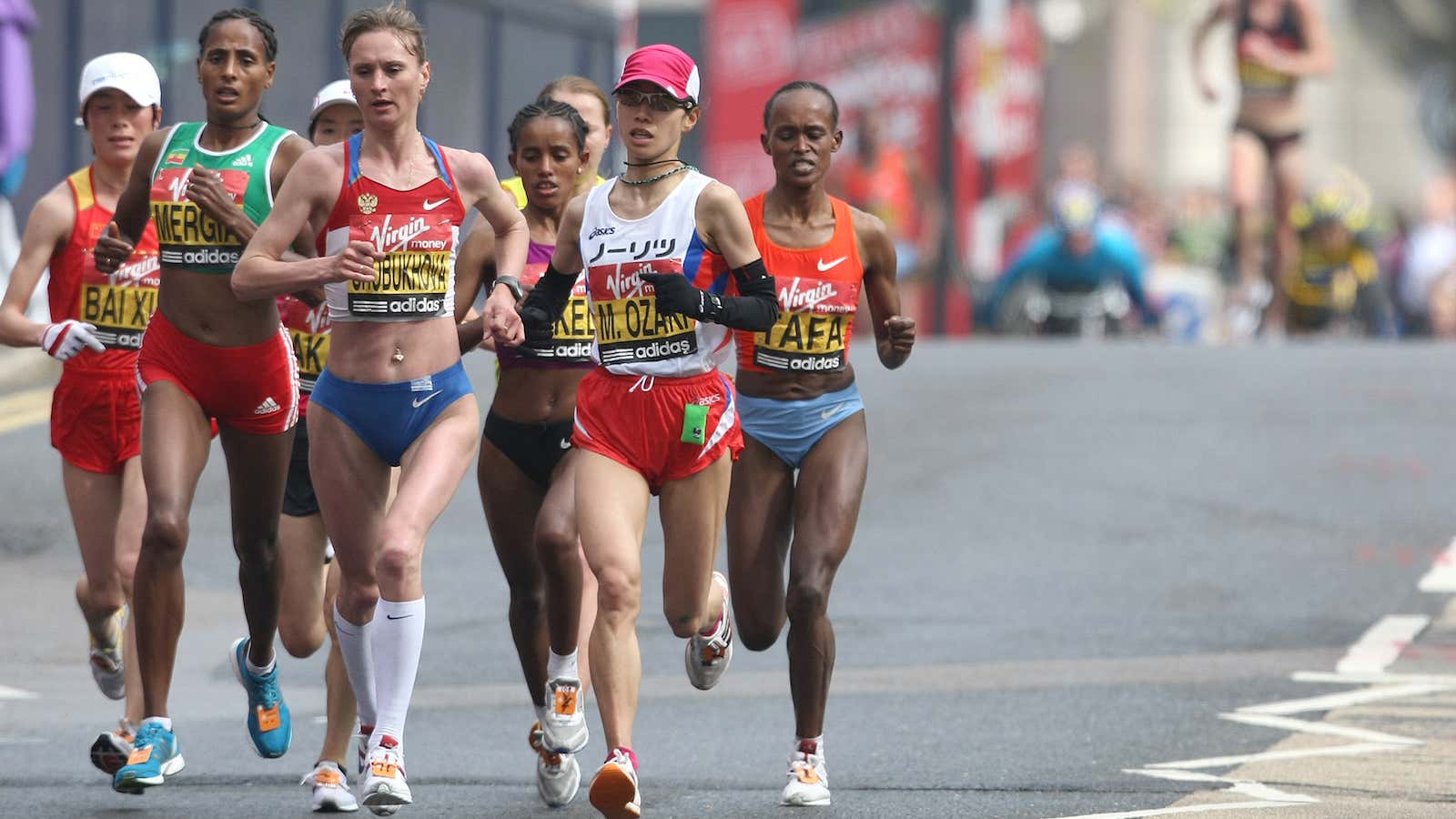This post has been updated.
Russian athletes, coaches, and trainers—backed by the Russian government and the FSB intelligence agency—have run a massive and sophisticated covert doping scheme to dominate track and field competitions, according to an explosive report by the World Anti-Doping Agency (WADA).
The disclosures appear to show the biggest doping scandal in athletics history. It details a similar level of systemized cheating as practiced by cyclist Lance Armstrong, but also details the extensive involvement of the Russian government and bribery of sports officials.
“What made these allegations even more egregious was the knowledge that the government of the Russian Federation provides direct funding and oversight for the above institutions, thus suggesting that the federal government was not only complicit in the collusion, but that it was effectively a state-sponsored regime,” the report stated.
In related news, Lamine Diack, the former head of the International Association of Athletics Federations (IAAF), has been arrested by French police for taking over €1 million ($1.1 million) in bribes to cover up positive drug results, enabling several Russian track and field athletes to win medals at the 2012 London Olympics.
WADA’s 300 page report (pdf) is the result of a nearly yearlong investigation by an independent commission, inspired by a documentary made by German public broadcaster ARD. It detailed how Liliya Shobukhova, a former Chicago Marathon winner, worked together with Russian officials to bribe international sporting officials who had served her with a doping ban. It also named a half-dozen Russian coaches by name, and says they demanded payments from athletes to receive their performance-enhancing drugs.
The commission called on WADA to discredit a Moscow lab for its role in covering up test results, and to declare the Russian National Anti-Doping Agency and the All-Russian Athletics Federation as noncompliant. While the report says WADA is “limited” in the sanctions it can place on Russia, its authors call for the International Olympic Committee, which determines who can host and compete the Olympics, and the International Federation, which can suspend or expel nations from its federation, to review the findings and decide on appropriate actions.
Asked by the Guardian if Russia would be banned from the sport, current IAAF president Sebastian Coe warned he could ”never say never.” In a statement, the group said:
In response to WADA’s Independent Commission report issued today, the IAAF President, Sebastian Coe, has taken the urgent step of seeking approval from his fellow IAAF Council Members to consider sanctions against the Russian Athletics Federation (ARAF). These sanctions could include provisional and full suspension and the removal of future IAAF events.
“I’m angry about the position our sport is in today,” Coe, who was formerly the group’s vice president under Diack, told the Guardian. “I’m shocked, I’m angered and dismayed.”
Russian news agency Tass reported Nikita Kamaev, the executive director of the Russian National Anti-Doping Agency (RUSADA), as saying that WADA’s allegations were “ungrounded.” Likewise, in a statement, the All-Russia Athletics Federation (ARAF) said it “dismisses any groundless claims against itself.” Vadim Zelichenok, acting ARAF president, was also reported saying that WADA’s independent commission did not contact ARAF’s new administration during its investigation.
A spokesperson for the Kremlin said today that he had nothing to add, and would rely on the sport ministry to disprove the allegations.
Here are some of the allegations and details laid out by the WADA report:
- During the Sochi Olympics, an accredited Russian drug testing laboratory was staffed with members of the FSB security agency, the successor to the KGB: “The reported presence of the security services (FSB) within the laboratory setting in Sochi and at the Moscow laboratory, actively imposed an atmosphere of intimidation on laboratory process and staff, and supported allegations of state influence in sports events.”
- The London Olympics were “sabotaged” by the doping efforts. WADA called for lifetime bans for 800 meters gold and bronze-medal winners Mariya Savinova-Farnosova and Ekaterina Poistogova, respectively.
- One Russian doctor, Dr. Sergey Portugalov, “is the central figure in the preparation of Russian Olympic athletes and has been active since the Soviet era,
during the intensive doping phase throughout the 1970s and 1980s.” Not only did Portugalov “supply [performance enhancing drugs] to athletes and coaches, but also administered the doping programs and even injected athletes himself.” - Grigory Rodchenkov, director of Moscow’s testing lab, was “an integral part of the conspiracy to extort money from athletes in order to cover up positive doping test results.” Germany’s ARD reported that former Chicago Marathon winner Shobukhova paid €450,000 to cover up a drug test. When she was subsequently banned for two years, her husband received a €300,000 refund.
- The impact of the report may well reach into the realm of international football, as Russian sports minister Vitaly Mutko, who is criticized in its findings, is a FIFA board member and the organizer of the 2018 World Cup. When investigators asked who instructed the Moscow laboratory to manipulate particular samples, employees said: “there is no need [to know the names] because the instructions are directly from the Ministry of Sport.”
Additional reporting by Steve LeVine.
